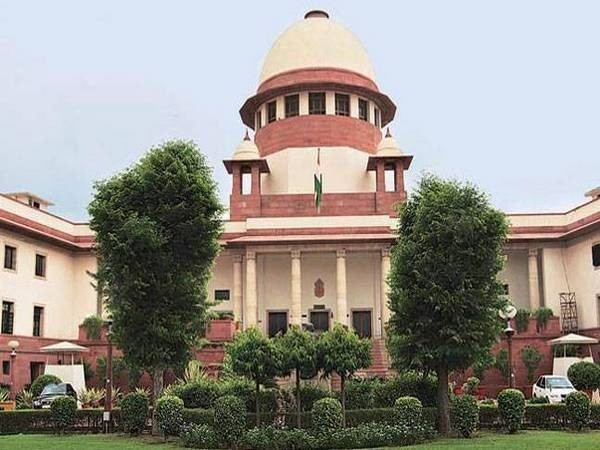Hyderabad Encounter: Time to review modern judiciary and restore people’s confidence
It’s probably for the first time in the history of independent India, the parliamentarians, chief ministers and ministers in the Union and State governments are openly supporting an encounter. This indicates the people from top to bottom have lost their hope in judiciary. Today, the biggest challenge before the leaders of Indian judiciary is to restore the confidence of ‘we the people’.

- Country:
- India
Though the Hyderabad police (#HyderabadEncounter) reiterated that their officers fired in self-defence and to prevent the culprits from escape, they are being congratulated for ‘instant justice’. The congratulations are not only coming from common people but parliamentarians, cabinet ministers, chief ministers, former chief ministers, celebrities, bureaucrats, police officers and retired officers etc. have also joined the chorus. Some of them have gone to the extent of considering it as a role model in rest of the pending and future cases of rapes and gang rapes.
The encounter is revolving between two extreme narratives. Those supporting the police personnel are not doing this on the ground of successive events that lead to the encounter but the final result – the death of the four culprits, while those opposing the police encounter are not ready to have a second thought on police’s story. They have been flaying the supporters of the encounter by calling it ‘mobocracy’ but are displaying the same level of ‘mobocracy’ in their criticism to the police. As the mandatory magistrate inquiry is yet to begin, there is no way either to reject or accept the claims of the police. However, the self-proclaimed logicians have delivered ‘instant justice’ for the police and labelled the encounter as ‘fake’ (#FakeEncounter).
This is because the horrible gang rape-murder and burning the body of the veterinary doctor in Cyberabad on November 28 had shaken the conscience of every Indian. Besides, the case was being replicated in other parts of the country. Within a week of this brutal incident, at least three half-burnt bodies of girls and women were found in the India – Ranchi, Samastipur and Malda. A rape survivor was burnt alive in Unnao on December 5 while another girl who is raped and burnt in Sambhal died in Delhi on November 30.
What ails the Judiciary? Tareek Pe Tareekh
Tareekh Pe Tareekh (date after date) - this popular dialogue of actor Sunny Deol in Hindi film ‘Damini’ holds water even today. Though the rules have been made and some Fast-track courts are created, a solution of faster justice is yet to find out.
Infamous Nirbhaya case of 2012 is still waiting for final justice event after seven years. Thereafter thousands of girls and women have been raped and gang-raped including toddlers, teens and elderly. In some horrible cases, the eyes of the rape victims were taken out and rods and wine bottles were found inserted in the private parts of the girls but all the cases are pending in courts. The pendency of these cases have built up a mistrust against the modern judicial system and quasi-judicial bodies of human rights. The human rights are claimed to be made to protect the rights of the humans but now the humans are questioning their relevance. This shows a conflict between theory and practice.
The judiciary needs to initiate reforms from within and have serious thoughts on completing the judicial process at the earliest by introducing innovative means including allocation of the maximum number of hours to be invested in each case. If the cases are dragged in the court for year after year, the victims and their families will be demoralized. The practice, often done intentionally by the opposition lawyers, goes in the favor of culprits who try their best to pressurize the victim, her family and ensure that the witnesses turn hostile.
The theorists of the modern judiciary seem to be reluctant in accepting reforms and inclusiveness. Even though the modern judiciary also makes the same blunders of acquitting real culprits and sentencing the innocent persons, the blame always goes on traditional social systems. Those informal systems of the traditional society which worked for centuries are never given a second chance. They are being demolished and replaced by less functional, less efficient and more corrupt modern quasi-judicial bodies. For instance: NGOs, corporate offices, universities, colleges, schools have a provision of ‘Internal Complaint Committee’ where the victims of sexual harassment can approach before going to the police but informal social institutions such family, neighbourhood, village panchayats, RWAs, housing societies etc. have not been provided such facilities.
The Way Ahead
The theorists of the modern judicial system need to come out of the superiority complex that they have been gifted the supreme knowledge by the almighty to guide society. There is no harm in accepting that the existing form of the modern judiciary has failed in meeting the expectations of the people and needs a complete overhaul. The modern theorists need to be get rid of their reluctance of using the judiciary as a bulldozer to demolish the society but realize the need of working with society. Here arises the need of continuous innovations and reforms in the judicial and quasi-judicial bodies.
(Disclaimer: The opinions expressed are the personal views of the author. The facts and opinions appearing in the article do not reflect the views of Devdiscourse and Devdiscourse does not claim any responsibility for the same.)
- FIRST PUBLISHED IN:
- Devdiscourse










